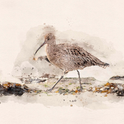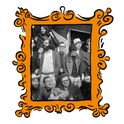A Kind Manby Susan Hill (Chatto & Windus, £10.99)
Of all the contemporary novelists who are compared to Dickens, Susan Hill probably has the best claim. Her protean ability to turn her hand to almost every genre from literary fiction, short stories and plays to ghost, children’s and detective novels; her entrepreneurial flair in starting up a small publishing business; her energetic and occasionally exasperating blogging both on the Spectator website and on Facebook are reminiscent of Boz [Dickens’s pen-name]. So, too, is her preoccupation with innocence, violence, greed and the supernatural. Like Dickens, she was successful from an early age, tends to depict people from a multitude of social classes with interest and compassion, and has been something of an outsider in literary life.
Certainly, outsiders tend to be her protagonists, and her latest novel, in a career spanning 50 years, is no exception. A Kind Man opens with a couple who have lost their only child, aged four, to illness. The setting is an industrial town where unemployment is about to soar; the time is left vague but the spare prose and mood of deep grief recalls Hill’s early novel, In the Springtime of the Year, and her non-fiction account of losing her second baby, Family. Eve and Tommy Carr, the kind man of the title, live in modest circumstances. He works as a printer, and she tends their small home on the edge of the town.
The couple do not talk of their grief— Hill’s protagonists, whether ghost-haunted or trying to work out the motives for murder, tend to take British reticence to extremes—but their lives are about to become harder. Eve has a troubled relationship with her younger sister Miriam, who has borne six sons by the selfish, indolent John Bullard. Miriam has never seen the point of Tommy, a quiet, shy man with “nothing… memorable about him” other than his kindness. It is his kindness which makes him remarkable in many small ways, and also in much stranger ones.
For this is not only that rare thing in fiction, the story of a happy marriage, but of a series of supernatural events akin to those in Stephen King’s The Green Mile. At 31, Tommy contracts what is clearly a terminal case of cancer. Corpse-pale, he is sent home from work and not expected to last the night. The Carrs are too poor to afford medicines (an indicator that the story is set in pre-war times), and are not told the truth about his condition by the doctor who attends them. In the middle of their troubles, Eve is dragged away to tend her sister, bedridden after a miscarriage, and her sister’s neglected family whose squalid conditions are exacerbated by hard-heartedness and despair. On her return, the couple await death and disaster. They sleep holding hands, and in the night a strange fever comes. Tommy wakes without swellings or pain, and feels “as if he had been rinsed in clear water.”
From then on, not only is he well, but he can heal others. He first saves a neighbour, then the victim of an accident at the printing works. These miracles (which nobody calls such) far from making their own existence easier, lead to Tommy being sacked and shunned by all but the desperate relations of the sick. The town doctor is furious at the undermining of medical science, and Tommy’s sister-in-law thinks him a fool for not charging for his healing—especially as the couple are by now close to destitution.
Hill has produced another perfectly controlled work of fiction, written in the pared-down style of her more “literary” novels rather than the more florid one of her ghost novellas. Like her previous novel, The Beacon, it asks questions about life, death, truth, greed and goodness; by moving its territory into the realm of the miraculous it ends more hopefully than is usual in her oeuvre. Unlike Stephen King’s story, which suggests a vast tapestry of injustice by imagining Jesus being reborn as a black man, A Kind Man is as modest and subtle as the couple it describes. Characteristic Hill preoccupations, such as the persecution of the innocent, are balanced by a sense of the goodness of love and beauty of nature; this time, though there is tragedy, the novel ends on a note of redemption and hope.
What is striking about the best of Hill’s fiction—In the Springtime of the Year, Strange Meeting, The Woman in Black and I’m the King of the Castle—is her almost Bachian ability to plumb the depths of emotion and bring the reader back out again so economically, by means of structure. The scale of her stories is small, even when (as in Strange Meeting) the setting is that of the first world war trenches, yet the tales are no more “feminine” than that of Flaubert’s “Un Coeur Simple.” Tiny things—such as making more notches in a belt—presage dramas of disaster or relief in the lives of men, women or children. Verbs abound, metaphors are used sparingly, dialogue is brief and to the point; she can be understood by a schoolchild, yet comprehended only by adults. She is, in this respect, the least “Dickensian” author imaginable, but at 69 she has developed into one of our most stimulating novelists.
As Eve, watching her husband, realises, “Everyone has a time when they are in their prime of life. Everyone has as little as one year when they are the best they will ever be, the healthiest, strongest, most handsome, most full of energy and hope, when they might do anything and it can be seen upon them, this prime, in their eyes, on their skin, in their walk. But they do not know it. Perhaps they cannot know it.”
Such insights into the human condition are what will keep people reading Hill long after more modish novelists have vanished from public esteem.
Of all the contemporary novelists who are compared to Dickens, Susan Hill probably has the best claim. Her protean ability to turn her hand to almost every genre from literary fiction, short stories and plays to ghost, children’s and detective novels; her entrepreneurial flair in starting up a small publishing business; her energetic and occasionally exasperating blogging both on the Spectator website and on Facebook are reminiscent of Boz [Dickens’s pen-name]. So, too, is her preoccupation with innocence, violence, greed and the supernatural. Like Dickens, she was successful from an early age, tends to depict people from a multitude of social classes with interest and compassion, and has been something of an outsider in literary life.
Certainly, outsiders tend to be her protagonists, and her latest novel, in a career spanning 50 years, is no exception. A Kind Man opens with a couple who have lost their only child, aged four, to illness. The setting is an industrial town where unemployment is about to soar; the time is left vague but the spare prose and mood of deep grief recalls Hill’s early novel, In the Springtime of the Year, and her non-fiction account of losing her second baby, Family. Eve and Tommy Carr, the kind man of the title, live in modest circumstances. He works as a printer, and she tends their small home on the edge of the town.
The couple do not talk of their grief— Hill’s protagonists, whether ghost-haunted or trying to work out the motives for murder, tend to take British reticence to extremes—but their lives are about to become harder. Eve has a troubled relationship with her younger sister Miriam, who has borne six sons by the selfish, indolent John Bullard. Miriam has never seen the point of Tommy, a quiet, shy man with “nothing… memorable about him” other than his kindness. It is his kindness which makes him remarkable in many small ways, and also in much stranger ones.
For this is not only that rare thing in fiction, the story of a happy marriage, but of a series of supernatural events akin to those in Stephen King’s The Green Mile. At 31, Tommy contracts what is clearly a terminal case of cancer. Corpse-pale, he is sent home from work and not expected to last the night. The Carrs are too poor to afford medicines (an indicator that the story is set in pre-war times), and are not told the truth about his condition by the doctor who attends them. In the middle of their troubles, Eve is dragged away to tend her sister, bedridden after a miscarriage, and her sister’s neglected family whose squalid conditions are exacerbated by hard-heartedness and despair. On her return, the couple await death and disaster. They sleep holding hands, and in the night a strange fever comes. Tommy wakes without swellings or pain, and feels “as if he had been rinsed in clear water.”
From then on, not only is he well, but he can heal others. He first saves a neighbour, then the victim of an accident at the printing works. These miracles (which nobody calls such) far from making their own existence easier, lead to Tommy being sacked and shunned by all but the desperate relations of the sick. The town doctor is furious at the undermining of medical science, and Tommy’s sister-in-law thinks him a fool for not charging for his healing—especially as the couple are by now close to destitution.
Hill has produced another perfectly controlled work of fiction, written in the pared-down style of her more “literary” novels rather than the more florid one of her ghost novellas. Like her previous novel, The Beacon, it asks questions about life, death, truth, greed and goodness; by moving its territory into the realm of the miraculous it ends more hopefully than is usual in her oeuvre. Unlike Stephen King’s story, which suggests a vast tapestry of injustice by imagining Jesus being reborn as a black man, A Kind Man is as modest and subtle as the couple it describes. Characteristic Hill preoccupations, such as the persecution of the innocent, are balanced by a sense of the goodness of love and beauty of nature; this time, though there is tragedy, the novel ends on a note of redemption and hope.
What is striking about the best of Hill’s fiction—In the Springtime of the Year, Strange Meeting, The Woman in Black and I’m the King of the Castle—is her almost Bachian ability to plumb the depths of emotion and bring the reader back out again so economically, by means of structure. The scale of her stories is small, even when (as in Strange Meeting) the setting is that of the first world war trenches, yet the tales are no more “feminine” than that of Flaubert’s “Un Coeur Simple.” Tiny things—such as making more notches in a belt—presage dramas of disaster or relief in the lives of men, women or children. Verbs abound, metaphors are used sparingly, dialogue is brief and to the point; she can be understood by a schoolchild, yet comprehended only by adults. She is, in this respect, the least “Dickensian” author imaginable, but at 69 she has developed into one of our most stimulating novelists.
As Eve, watching her husband, realises, “Everyone has a time when they are in their prime of life. Everyone has as little as one year when they are the best they will ever be, the healthiest, strongest, most handsome, most full of energy and hope, when they might do anything and it can be seen upon them, this prime, in their eyes, on their skin, in their walk. But they do not know it. Perhaps they cannot know it.”
Such insights into the human condition are what will keep people reading Hill long after more modish novelists have vanished from public esteem.












